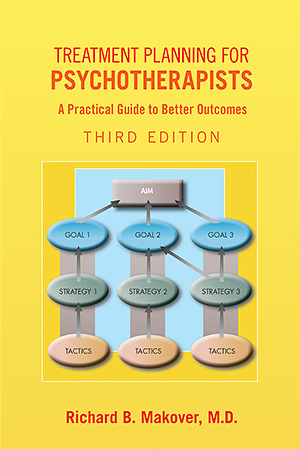Chapter 11.The Treatment Contract
Sections
Excerpt
The final planning stage comprises the process by which the treatment plan envisioned by the therapist becomes a mutual agreement, the treatment contract, between therapist and patient. This agreement is usually arrived at through a negotiation. While the negotiation may be covert—the therapist either says nothing about his or her plan or else makes declaratory statements that convey the message: “This is how we will proceed”—the better course is to create a dialogue through which some or all of the treatment plan is overtly stated and agreed upon with the patient. Covert negotiations, in which only one side gets to say what will happen, can easily lead to a false agreement that will only unravel later and lead to a treatment impasse.
Access content
To read the fulltext, please use one of the options below to sign in or purchase access.- Personal login
- Institutional Login
- Sign in via OpenAthens
- Register for access
-
Please login/register if you wish to pair your device and check access availability.
Not a subscriber?
PsychiatryOnline subscription options offer access to the DSM-5 library, books, journals, CME, and patient resources. This all-in-one virtual library provides psychiatrists and mental health professionals with key resources for diagnosis, treatment, research, and professional development.
Need more help? PsychiatryOnline Customer Service may be reached by emailing [email protected] or by calling 800-368-5777 (in the U.S.) or 703-907-7322 (outside the U.S.).



